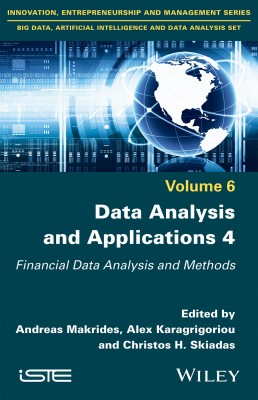
Data analysis as an area of importance has grown exponentially, especially during the past couple of decades. This can be attributed to a rapidly growing computer industry and the wide applicability of computational techniques, in conjunction with new advances of analytic tools. This being the case, the need for literature that addresses this is self-evident. New publications are appearing, covering the need for information from all fields of science and engineering, thanks to the universal relevance of data analysis and statistics packages.
This book is a collective work by a number of leading scientists, analysts, engineers, mathematicians and statisticians who have been working at the forefront of data analysis. The chapters included in this volume represent a cross-section of current concerns and research interests in these scientific areas. The material is divided into three parts: Financial Data Analysis and Methods, Statistics and Stochastic Data Analysis and Methods, and Demographic Methods and Data Analysis- providing the reader with both theoretical and applied information on data analysis methods, models and techniques and appropriate applications.
Part 1. Financial Data Analysis and Methods
1. Forecasting Methods in Extreme Scenarios and Advanced Data Analytics for Improved Risk Estimation, George-Jason Siouris, Despoina Skilogianni and Alex Karagrigoriou.
2. Credit Portfolio Risk Evaluation with Non-Gaussian One-factor Merton Models and its Application to CDO Pricing, Takuya Fujii and Takayuki Shiohama.
3. Towards an Improved Credit Scoring System with Alternative Data: the Greek Case, Panagiota Giannouli and Christos E. Kountzakis.
4. EM Algorithm for Estimating the Parameters of the Multivariate Stable Distribution, Leonidas Sakalauskas and Ingrida Vaiciulyte.
Part 2. Statistics and Stochastic Data Analysis and Methods
5. Methods for Assessing Critical States of Complex Systems, Valery Antonov.
6. Resampling Procedures for a More Reliable Extremal Index Estimation, Dora Prata Gomes and M. Manuela Neves.
7. Generalizations of Poisson Process in the Modeling of Random Processes Related to Road Accidents, Franciszek Grabski.
8. Dependability and Performance Analysis for a Two Unit Multi-state System with Imperfect Switch, Vasilis P. Koutras, Sonia Malefaki and Agapios N. Platis.
9. Models for Time Series Whose Trend Has Local Maximum and Minimum Values, Norio Watanabe.
10. How to Model the Covariance Structure in a Spatial Framework: Variogram or Correlation Function?, Giovanni Pistone and Grazia Vicario.
11. Comparison of Stochastic Processes, Jesús Enrique García, Ramin Gholizadeh and Verónica
Andrea González-López.
Part 3 . Demographic Methods and Data Analysis
12. Conjoint Analysis of Gross Annual Salary Re-evaluation: Evidence from Lombardy ELECTUS Data, Paolo Mariani, Andrea Marletta and Mariangela Zenga.
13. Methodology for an Optimum Health Expenditure Allocation, George Matalliotakis.
14. Probabilistic Models for Clinical Pathways: The Case of Chronic Patients, Stergiani Spyrou, Anatoli Kazektsidou and Panagiotis Bamidis.
15. On Clustering Techniques for Multivariate Demographic Health Data, Achilleas Anastasiou, George Mavridoglou,
Petros Hatzopoulos and Alex Karagrigoriou.
16. Tobacco-related Mortality in Greece: The Effect of Malignant Neoplasms, Circulatory and Respiratory Diseases,1994–2016, Konstantinos N. Zafeiris.
Andreas Makrides is Associate Lecturer of Statistics at the University of Central Lancashire, Cyprus (UClan) and conducted postdoctoral research at the Laboratoire de Mathématiques Raphaël Salem, Université de Rouen, France.
Alex Karagrigoriou is Professor of Probability and Statistics at the University of the Aegean, Greece. He is also the faculty’s Head of Graduate Studies and Director of the in-house Laboratory of Statistics and Data Analysis.
Christos H. Skiadas is former vice-Rector at the Technical University of Crete, Greece and founder of its Data Analysis and Forecasting Laboratory. He continues his research in ManLab, in the faculty’s Department of Production Engineering and Management.